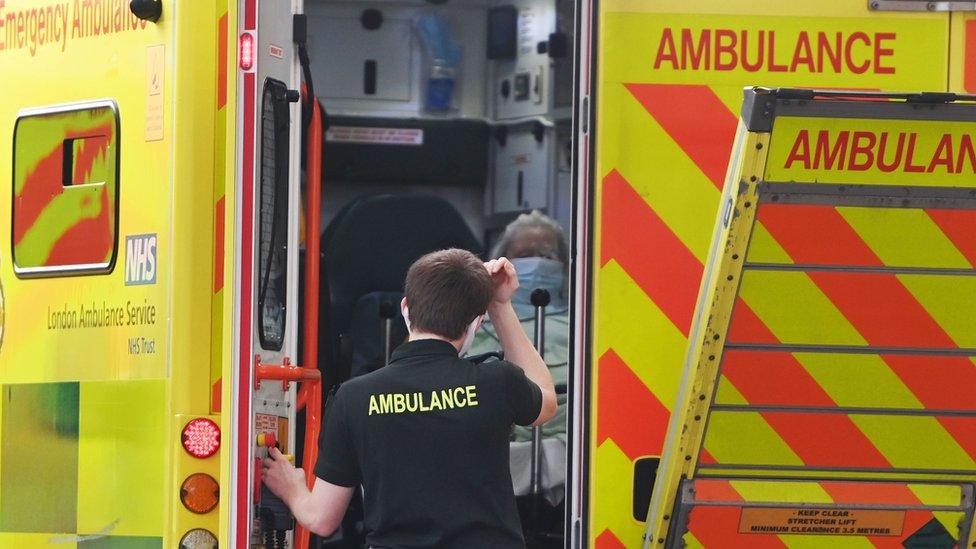Airport strikes: PCS union alarm at plan to deploy Army
- Published
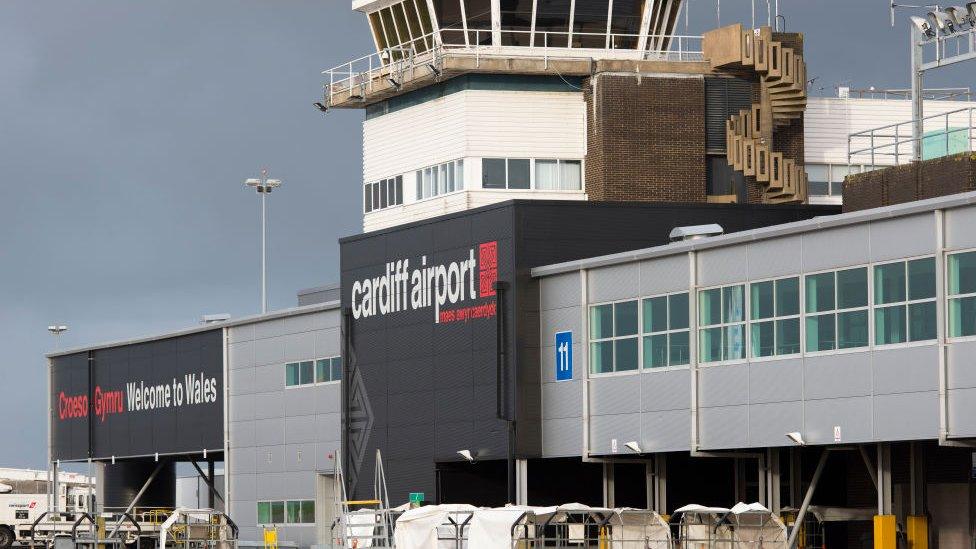
Passport control staff at airports including Cardiff are due to strike over the Christmas period
Drafting in the Army to airports during industrial action over the Christmas period would be "completely wrong", a union head has said.
Passport check staff at five airports will take action later this month.
Mark Serwotka of the Public and Commercial Services (PCS) union said it would be a mistake for the UK government to bring in the military.
The Welsh government, Cardiff Airport's owner, said it "strongly urges" Downing Street to negotiate with unions.
The PCS has warned that airport strikes could continue into the new year if the UK government fails to "come to the table".
Mr Serwotka, general secretary of the PCS union, told BBC Radio Wales Sunday Supplement: "I would say in a nation where there is a history of the Army being brought in, it would be completely wrong for anyone to think that the way to solve an industrial dispute is to ask our armed forces to effectively come in and strike break".
He grew up in south Wales, where controversy remains more than a century later about the decision of then Home Secretary Winston Churchill to send in troops to the Rhondda town of Tonypandy to tackle riots by striking miners.
"That's not the way you solve these problems, you solve it around the negotiating table," said Mr Serwotka.
Pay dispute
"I have confidence that [First Minister] Mark Drakeford would hopefully be urging [Home Secretary] Suella Braverman and people in Westminster to get around the table and solve this dispute."
Meanwhile, Prime Minister Rishi Sunak has vowed to take action against "unreasonable" striking groups.
The Border Force strikes will take place over eight days - between 23 December and New Year's Eve - at London Gatwick, Heathrow, Manchester, Birmingham and Cardiff airports.
The dispute is over pay, and the union says the action will escalate if the UK government does not enter talks.
Mr Serwotka said: "Escalation is likely to involve passports, the DVLA in Swansea, job centres, people working in Whitehall departments in devolved institutions, the heart of government that touches people from cradle to grave.
"There's no point going on strike if no-one notices. Any anger should not be directed at staff, it should be directed at the UK government."
'A knee-jerk reaction'
Speaking about the planned use of the Army to fill gaps where staff are striking, Mr Serwotka added: "The fact they have started bringing in the Army, in uniform, to stand in our airports over Christmas without adequate training, as a knee-jerk response to try to undermine the strike, I think shows this is a government totally mishandling the situation.
"If they're using the Army in our airports and to drive our ambulances, what's next? Will the Army be driving trains and teaching and standing in wards? Of course they can't."
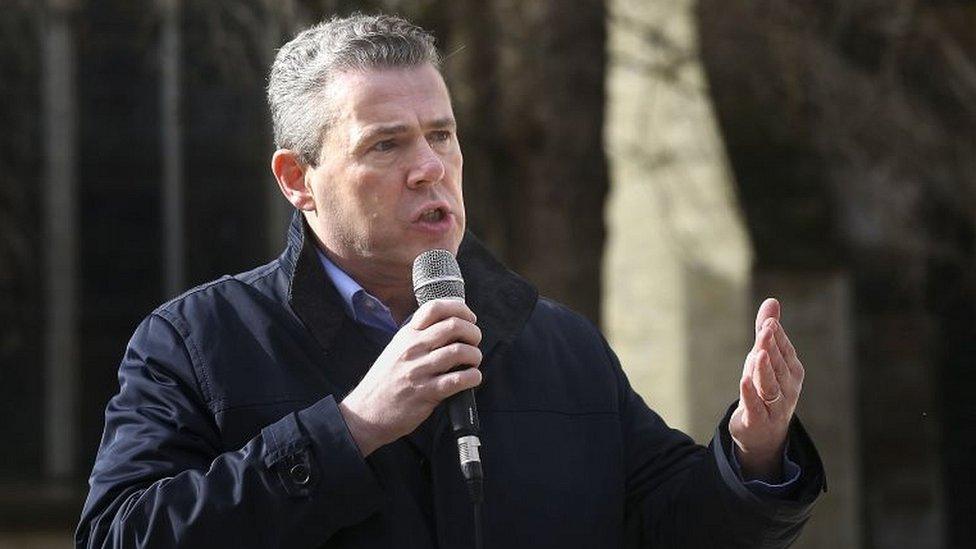
Mark Serwotka of PCS says the government needs to be looking at the wider problem, rather than quick fixes such as drafting in the Army
He said that the government "should not try short-term fixes" but instead focus on tackling the "real crisis" of work poverty by getting "round the negotiating table".
A Welsh government spokesperson said: "The UK government is responsible for borders and immigration policy and we strongly urge it to negotiate with the PCS to resolve this dispute.
'New tough laws'
"We would urge people to check before they travel."
The PCS is one of a number of union groups striking over the Christmas period - with rail staff, postal workers, ambulance drivers and nurses among others taking a stand over pay and working conditions.
Speaking in the House of Commons on Wednesday, Prime Minister Rishi Sunak said he is working on "new tough laws" to protect people from strike action.
"If union leaders continue to be unreasonable, then it is my duty to take action to protect the lives and livelihoods of the British public," he said.

LOOKING FOR A NEW PODCAST?: The Emiliano Sala Story
INJUSTICE OF A HANGED MAN: The shocking execution of Mahmood Mattan

Related topics
- Published7 December 2022
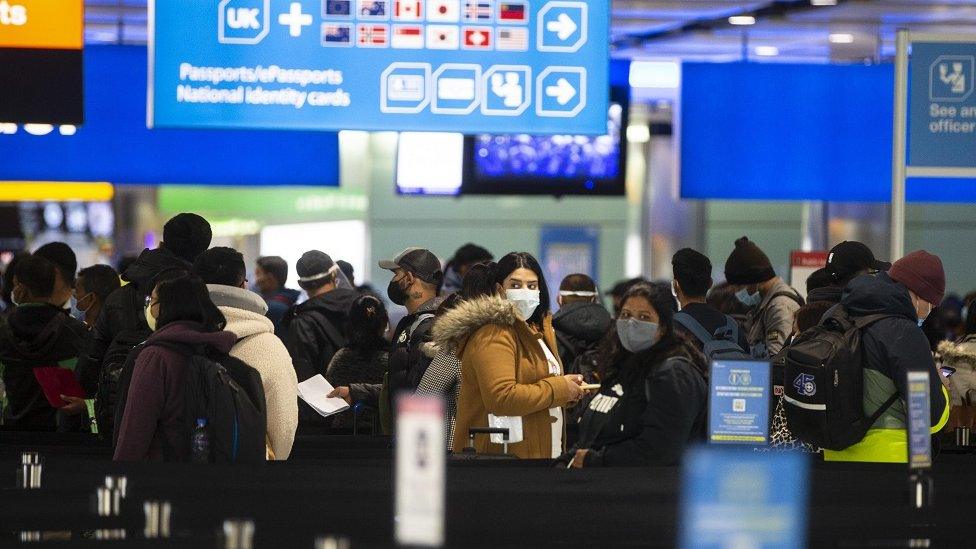
- Published6 December 2022
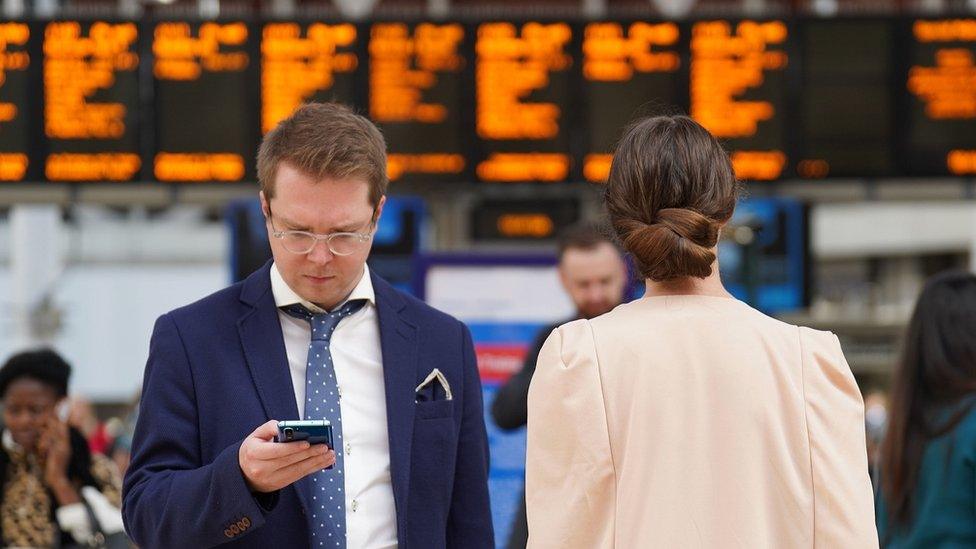
- Published6 December 2022
